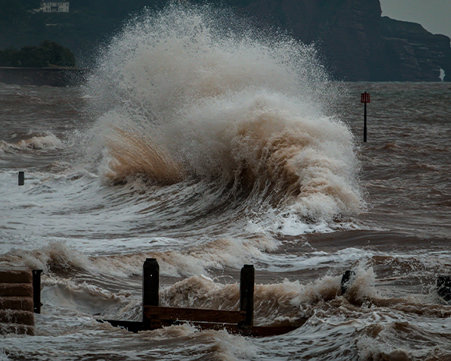
With the main political parties hosting their annual party conferences last week, there was plenty of noise in the media around hot topics including the energy sector.
Following the government’s widely criticised plans to cut the winter fuel allowance from pensioners not eligible for pension credit benefits, there is widespread concern for vulnerable households who may not be able to afford to stay warm this winter.
The energy regulator Ofgem confirmed in August that the energy price cap will rise by 10% on 1st October, adding around £12 per month to an average bill, equivalent to an annual cost of £1717 for the average household. The new cap is 6% cheaper than at the same time last year, but this will come as little comfort for those still struggling with the cost of living crisis who will find any increase a challenge at this time.
The Energy Secretary Ed Milliband used his conference speech to announce plans for energy regulations to apply to social as well as private housing. Currently, private landlords can rent homes that meet only the minimum standards for energy efficiency. Social housing is not subject to any minimum energy efficiency requirements meaning that housing associations and councils have been under no obligation to make improvements to homes that are cold and draughty. Campaigners have long been trying to protect some of the most vulnerable in our society who are living in housing stock that is being left to deteriorate without any penalty.
Mr Milliband claims that by introducing these measures, one million renters would move out of fuel poverty. Later this year Labour have said they will also consult on revised proposals that would require all rented homes to meet an EPC rating of C or its equivalent by 2030.
UK homes represent around a fifth of the UK’s greenhouse gas emissions and are currently costing households hundreds of pounds a year in higher energy bills so represent an urgent priority if the country is to achieve net zero.
In addition to the well documented environmental issues, health authorities are deeply concerned about the poor state of the UK’s homes and have expressed their unease at the number of cases of illness in children living in damp and mouldy homes.
Home insulation was not dealt with by the previous government but it remains the quickest way to improve living conditions and reduce utility bills. Energy bills are still 65% more than they were at the start of the energy crisis so action is desperately needed to help those in need as we approach winter.
Share this article

As 2024 comes to a close, we at Hi West would like to take a moment to express our heartfelt gratitude to everyone who has been part of our journey this year.

Last weekend saw Darragh, the fourth named storm of the 2024-25 season, unleash high winds and heavy rainfall across the British Isles, once again straining the UK’s flood defences and transport infrastructure to their limits.

According to figures released recently, the nuclear sector in Bristol has reached a new milestone, now supporting 3,500 jobs as the city strengthens its role as a center for engineering, manufacturing, and research.